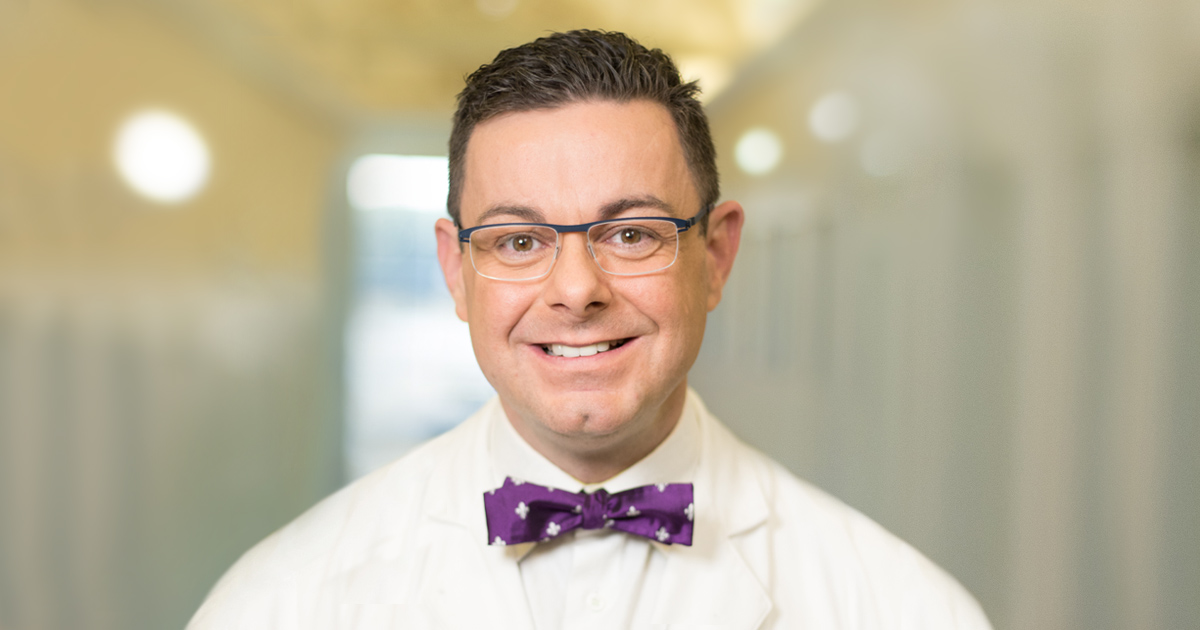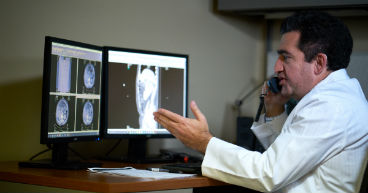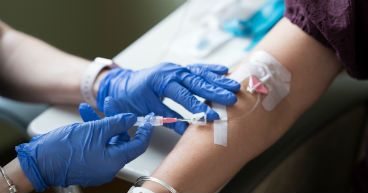
As hospitals and health care providers across the country continue to mobilize their resources to respond to and contain the COVID-19 outbreak, many cancer patients are worried about how their treatments may be impacted. Some hospitals are having to make difficult decisions, postponing or canceling surgeries and other procedures to make room for an influx of COVID-19 patients. Some cancer patients have already had to adjust to or work around delays in their care. Others worry that their upcoming procedures will be canceled or postponed. To help you navigate the road ahead, Sean Cavanaugh, MD, Chair of the Department of Radiation Oncology at Cancer Treatment Centers of America® (CTCA), answers common questions we’ve been fielding from cancer patients around the United States.
Question: What should I do if my cancer care has been interrupted?
Answer: It may depend on where you are in your treatment journey. If you’ve started any type of treatment—radiation therapy, chemotherapy, etc.— those need to be continued. Other types of care, such as follow-up visits, consultations and some tests, you may be able to postpone. For example, if you’ve completed radiation therapy, and you were scheduled to have a follow-up PET scan three months after your last treatment, you may be able to push that appointment back another month. But know that if your care is being delayed for any reason, you deserve an opportunity to talk with your health care provider about the potential risks involved and to answer any questions or concerns you may have.
Q: I’m not confident that delaying my care is safe. What should I do?
A: One question you should ask is why your care was delayed. If your oncologist decided to delay your treatment for some reason, it’s important to find out why and get answers as to the risks involved. If your treatment was postponed or canceled because the hospital no longer had the space or resources to accommodate the procedure, talk to your oncologist about finding another location that can meet your needs. Also remember that it’s always appropriate to get a second opinion for any important medical decision, and this is especially the case with cancer treatment. If you’re concerned about delays or interruptions in your care, consider a telehealth consultation with a cancer expert. He or she should be able to review your medical records remotely, discuss your case with you, and either confirm the delay is prudent or recommend another course of action.
Q: Are there certain cancer therapies that should not be delayed?
A: Yes. The COVID-19 pandemic is concerning, but cancer is a progressive disease, and many cancer therapies should continue without interruption. The question isn’t necessarily whether the treatment can or should be delayed on its own, but whether the risk of COVID-19 outweighs the risk of suspending cancer treatment. It’s a personal risk-benefit decision that each patient should evaluate with his or her provider. Symptomatic patients or patients with progressive or active disease should be especially careful about treatment interruptions. Every patient’s circumstances are unique, so we advise that you consult with an expert, either in person or virtually via telehealth technology, to determine which aspects of your care are safe to delay and which need to proceed. To help determine whether you may be able to postpone treatment, your doctor may consider many factors, including:
- Your age and overall health
- Your cancer type and stage
- Whether you are experiencing symptoms or side effects
- The type of treatment that was scheduled
- Where you are in your treatment regimen
Q: I have stage 4 cancer. If my prognosis is not promising, does that mean my treatment can wait?
A: No. Treatments for stage 4 cancers are largely designed to increase the patients’ longevity and improve their quality of life. The needs of stage 4 patients should be evaluated by an expert to decide how those therapies should be continued amid the COVID-19 outbreak.
Q: Are there options to treat at home?
A: For some patients, treatment can continue at home under the supervision of their care team via telemedicine visits. For example, some patients undergoing intravenous chemotherapies may be safely placed on chemotherapies taken in pill form at home. Certain hormone therapies may also be continued at home, with doctors writing prescriptions to be filled at a local pharmacy and following up with regular telehealth visits. Speak with your oncologist about whether he or she offers telehealth visits, and whether oral chemotherapy or other at-home options are available to you.
Q: Is it dangerous to come to a hospital right now?
A: There is increased risk in going anywhere right now, and that includes hospitals and cancer centers. But the risk to your health may be even greater if staying home delays your care. This is a difficult decision you shouldn’t have to make alone. Consider a telehealth visit with a qualified cancer expert who can help you understand your cancer care options during this crisis. Also, call your cancer care provider and ask what specific measures the hospital or cancer center is taking to protect patients and staff from COVID-19 infection. Hospitals like CTCA®, for example, are screening patients for the virus before they leave their home, taking on-site temperature tests upon their arrival, restricting the number of caregivers and other visitors, and requiring that everyone in clinical and general areas of the hospital—patients, visitors and staff—wear appropriate face masks at all times, among other precautionary measures. While some of these restrictions may seem burdensome, they are critical to protecting against the spread of the virus and may give you comfort that your health and safety are a priority.
Q: Between cancer and COVID, I’m feeling helpless and overwhelmed. What can I do?
A: The first thing you should do is forgive yourself for feeling overwhelmed. The COVID-19 pandemic is unsettling, and the burden can be much higher for cancer patients and their loved ones. Communicating with a qualified cancer expert and making a clear plan for what therapies should and should not continue at this time can help you feel less overwhelmed and more in control. Also, some hospitals, like CTCA, offer talk therapy, psychiatry and other mental health services via telehealth technology. Talk to your care team about how you can make these services available to you.
Q: I have tested positive for COVID-19. Can I still get treatment?
A: Not right away. We are not treating, and no one should be treating, patients with an active case of COVID-19, because it hasn’t been determined how we can safely do so. If you test positive for the virus, your treatment will be delayed for at least one week. At that point, your oncologist will need to continue to follow up with you to determine when it’s safe to resume your treatment.
Learn more about what caregivers can do to protect themselves and cancer patients.



